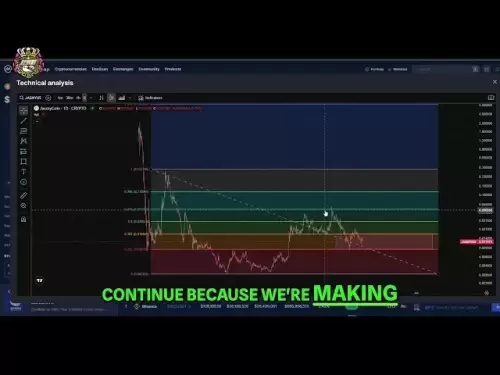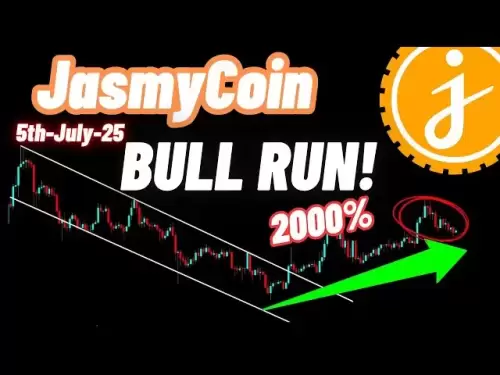-
 Bitcoin
Bitcoin $108,017.2353
-0.81% -
 Ethereum
Ethereum $2,512.4118
-1.58% -
 Tether USDt
Tether USDt $1.0002
-0.03% -
 XRP
XRP $2.2174
-1.03% -
 BNB
BNB $654.8304
-0.79% -
 Solana
Solana $147.9384
-1.76% -
 USDC
USDC $1.0000
-0.01% -
 TRON
TRON $0.2841
-0.76% -
 Dogecoin
Dogecoin $0.1636
-2.09% -
 Cardano
Cardano $0.5726
-1.72% -
 Hyperliquid
Hyperliquid $39.1934
1.09% -
 Sui
Sui $2.9091
-0.59% -
 Bitcoin Cash
Bitcoin Cash $482.1305
0.00% -
 Chainlink
Chainlink $13.1729
-1.54% -
 UNUS SED LEO
UNUS SED LEO $9.0243
-0.18% -
 Avalanche
Avalanche $17.8018
-1.90% -
 Stellar
Stellar $0.2363
-1.69% -
 Toncoin
Toncoin $2.7388
-3.03% -
 Shiba Inu
Shiba Inu $0.0...01141
-1.71% -
 Litecoin
Litecoin $86.3646
-1.98% -
 Hedera
Hedera $0.1546
-0.80% -
 Monero
Monero $311.8554
-1.96% -
 Dai
Dai $1.0000
-0.01% -
 Polkadot
Polkadot $3.3473
-2.69% -
 Ethena USDe
Ethena USDe $1.0001
-0.01% -
 Bitget Token
Bitget Token $4.3982
-1.56% -
 Uniswap
Uniswap $6.9541
-5.35% -
 Aave
Aave $271.7716
0.96% -
 Pepe
Pepe $0.0...09662
-1.44% -
 Pi
Pi $0.4609
-4.93%
What is the main intention of the sudden increase in volume but limited increase?
A sudden spike in crypto trading volume doesn't always mean big price moves—factors like whale activity, bots, or strong resistance levels can drive volume without shifting prices significantly.
Jul 05, 2025 at 07:35 pm
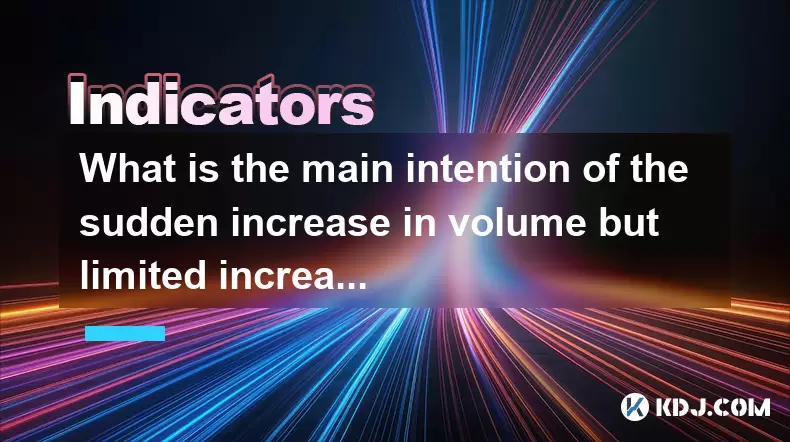
Understanding Sudden Volume Spikes in Cryptocurrency Markets
In the cryptocurrency market, a sudden increase in trading volume often catches the attention of traders and analysts. This phenomenon typically refers to a sharp rise in the number of transactions or trades executed for a particular digital asset within a short period. While this can signal heightened interest, it does not always result in a significant price movement. Understanding the reasons behind such behavior is crucial for informed decision-making.
Sudden spikes in volume may occur due to several factors including news events, whale movements, or automated trading bots. These surges do not necessarily correlate directly with price because market sentiment and order book depth play critical roles in how prices respond.
Why Prices May Not Reflect Volume Increases
One might expect that increased trading activity would lead to immediate price changes. However, this is not always the case. In some scenarios, large orders are placed but not fully executed, or there's strong resistance at certain price levels that prevents a breakout. This leads to what is known as a limited price increase despite high volume.
- Order book imbalances: Large buy walls can absorb sell pressure without pushing the price up significantly.
- Market manipulation: Whales or groups may create artificial volume by wash trading to attract retail investors.
- Arbitrage activities: Traders exploit price differences across exchanges without affecting the broader market trend.
These mechanisms help explain why volume may surge without a proportional shift in price.
Technical Indicators That Help Interpret Volume Trends
To better understand the relationship between volume and price, traders rely on specific technical indicators. The most commonly used ones include On-Balance Volume (OBV), Volume Weighted Average Price (VWAP), and Chaikin Money Flow (CMF).
On-Balance Volume tracks cumulative volume flows, helping identify whether institutional players are accumulating or distributing an asset. A rising OBV during sideways price action could suggest accumulation, even if the price remains flat.
Similarly, VWAP gives insight into where the majority of trades are occurring relative to the average price. If volume increases while price hovers near VWAP, it indicates a balance between buyers and sellers.
How to Differentiate Between Genuine and Artificial Volume
Not all volume is created equal. Some exchanges report inflated volumes through practices like wash trading, where traders execute fake trades to boost apparent activity. To distinguish real from artificial volume:
- Analyze exchange data sources: Use platforms like CoinGecko or CoinMarketCap which filter out suspicious exchanges.
- Check order book depth: Real volume usually comes with deep liquidity pools and genuine bid-ask spreads.
- Monitor blockchain analytics: Tools like Etherscan or Whale Alert can reveal large wallet movements that support or contradict volume reports.
By cross-referencing these data points, traders can assess whether a volume spike is likely to be meaningful or misleading.
Impact of News and Events on Trading Behavior
News cycles, regulatory developments, and macroeconomic factors frequently influence crypto markets. When major announcements occur, traders react quickly, leading to sudden spikes in volume. However, the market may already have priced in the information before the news breaks, resulting in minimal price movement.
For instance, if a country announces new crypto regulations and the market had already anticipated them, the actual release may cause a volume surge without significant price change. Similarly, positive news about adoption may initially drive volume but fail to push prices higher due to profit-taking or resistance zones.
Practical Steps to Analyze Volume-Pricing Discrepancies
If you're observing unusual volume patterns in your trading analysis, follow these practical steps to interpret their significance:
- Compare current volume against historical averages: Determine whether the spike is abnormal or part of regular volatility.
- Overlay volume with key support/resistance levels: See if the price is reacting to important technical zones despite low movement.
- Use multiple timeframes: Zoom in and out to see if the pattern repeats or diverges across different charts.
- Correlate with on-chain metrics: Look for wallet inflows/outflows or exchange balances to validate the strength of the move.
- Assess social sentiment: Check Twitter, Telegram, and Reddit for hype or fear that might explain the volume without confirming price action.
These methods allow traders to form a more comprehensive view of market conditions beyond surface-level observations.
Frequently Asked Questions
Q1: Can sudden volume spikes indicate a potential breakout?
Yes, they can, but only when accompanied by strong price movement above key resistance levels. If the price fails to break out despite high volume, it may signal rejection rather than continuation.
Q2: How do I know if a volume spike is caused by whales?
You can track large transactions using tools like Whale Alert or check blockchain explorers to see if significant transfers occurred around the time of the spike.
Q3: Is high volume always a good sign for traders?
Not necessarily. High volume can reflect both bullish accumulation and bearish distribution. It must be analyzed alongside price action and other technical indicators.
Q4: What role do trading bots play in creating sudden volume surges?
Bots can generate rapid-fire trades that inflate volume figures artificially. They often operate in low-liquidity environments or manipulate order books to mislead human traders.
Disclaimer:info@kdj.com
The information provided is not trading advice. kdj.com does not assume any responsibility for any investments made based on the information provided in this article. Cryptocurrencies are highly volatile and it is highly recommended that you invest with caution after thorough research!
If you believe that the content used on this website infringes your copyright, please contact us immediately (info@kdj.com) and we will delete it promptly.
- PEPE, BONK, and Remittix: Meme Coins Meet Real-World Utility
- 2025-07-06 02:30:13
- Score Big This Weekend with BetMGM Bonus Code for MLB Games
- 2025-07-06 02:50:13
- PENGU Token's eToro Debut and Weekly Surge: What's Driving the Hype?
- 2025-07-06 02:30:13
- Singapore's Crypto Crackdown: Laundering, Licenses, and Lessons
- 2025-07-06 02:50:13
- Royal Mint Coins: Unearthing the Rarest Queen Elizabeth II Treasures
- 2025-07-06 00:30:12
- BlockDAG, SEI, and HYPE: Decoding the Crypto Buzz in the Big Apple
- 2025-07-06 00:50:13
Related knowledge
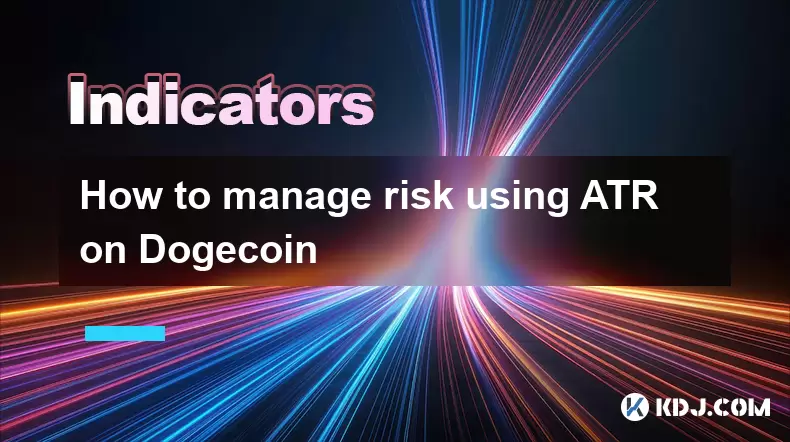
How to manage risk using ATR on Dogecoin
Jul 06,2025 at 02:35am
Understanding ATR in Cryptocurrency TradingThe Average True Range (ATR) is a technical indicator used to measure market volatility. Originally developed for commodities, it has found widespread use in cryptocurrency trading due to the high volatility inherent in digital assets like Dogecoin (DOGE). The ATR calculates the average range of price movement ...
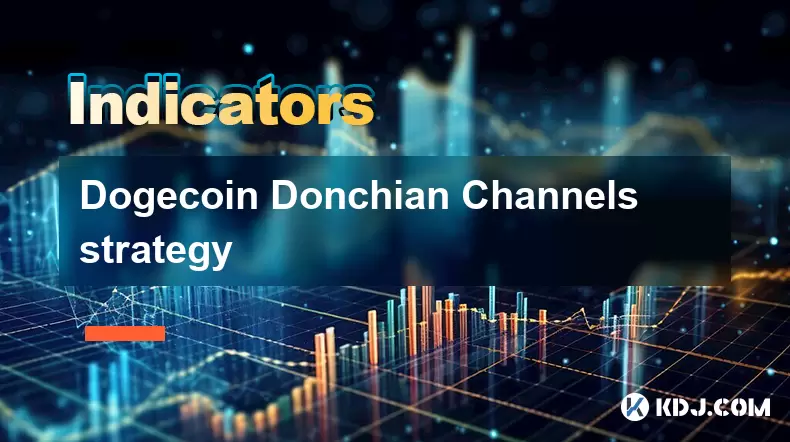
Dogecoin Donchian Channels strategy
Jul 06,2025 at 02:43am
What Are Donchian Channels?Donchian Channels are a technical analysis tool used to identify potential breakouts, trends, and volatility in financial markets. They consist of three lines: the upper band, which marks the highest high over a specific period; the lower band, which reflects the lowest low over the same period; and the middle line, typically ...
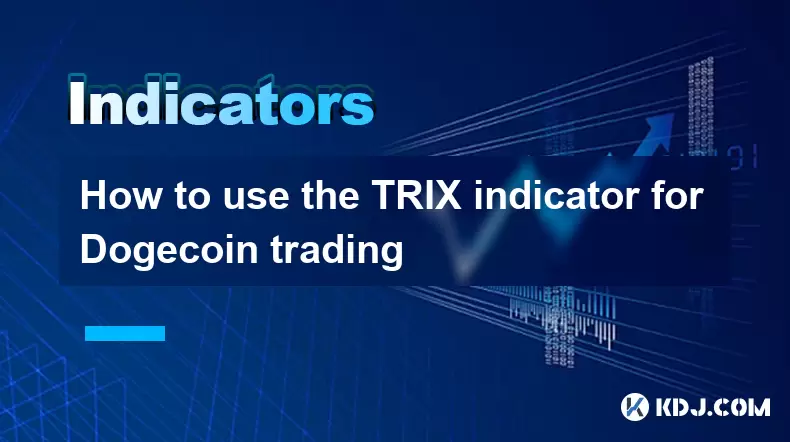
How to use the TRIX indicator for Dogecoin trading
Jul 06,2025 at 12:29am
Understanding the TRIX Indicator in Cryptocurrency TradingThe TRIX indicator, short for Triple Exponential Average, is a momentum oscillator widely used in technical analysis. It helps traders identify overbought or oversold conditions, potential trend reversals, and momentum shifts in an asset's price movement. While commonly applied to traditional mar...
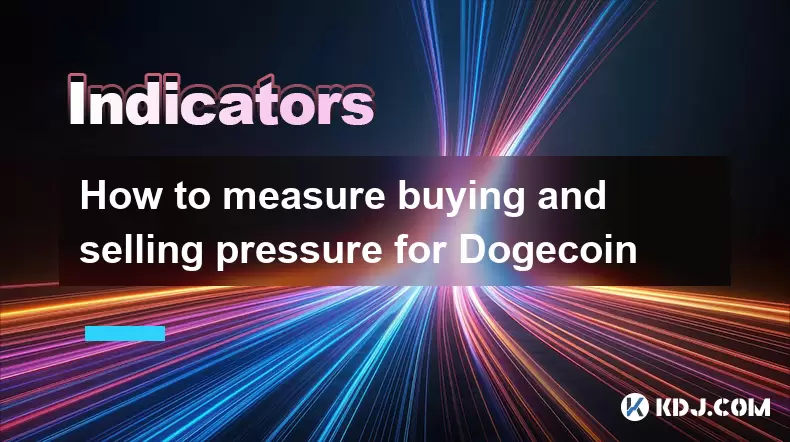
How to measure buying and selling pressure for Dogecoin
Jul 06,2025 at 01:57am
Understanding the Concept of Buying and Selling PressureBuying pressure refers to a situation where the demand for Dogecoin exceeds its supply, often leading to an upward movement in price. Conversely, selling pressure occurs when more investors are eager to sell their holdings than buy, which typically results in downward price action. These pressures ...
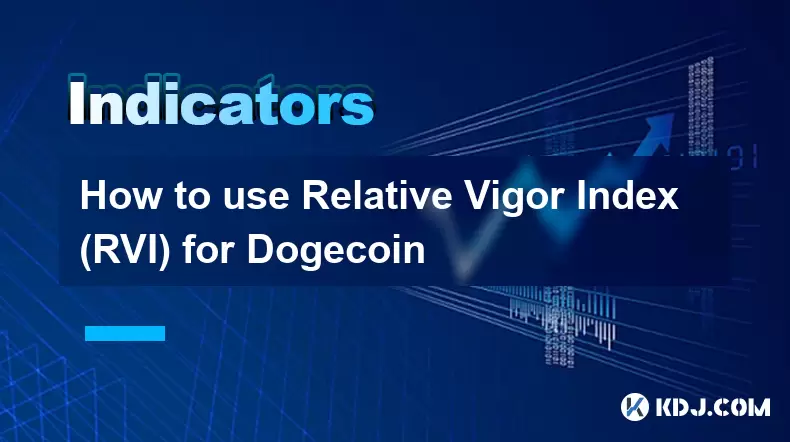
How to use Relative Vigor Index (RVI) for Dogecoin
Jul 06,2025 at 03:10am
Understanding the Relative Vigor Index (RVI)The Relative Vigor Index (RVI) is a technical analysis tool used to measure the strength of a trend by comparing a cryptocurrency’s closing price to its trading range over a specified period. In the context of Dogecoin (DOGE), RVI helps traders identify potential overbought or oversold conditions. The basic pr...
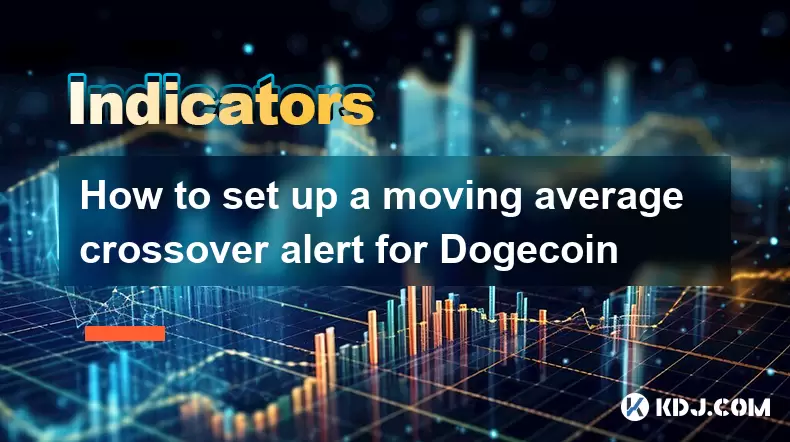
How to set up a moving average crossover alert for Dogecoin
Jul 05,2025 at 07:33pm
Understanding Moving Averages and Their Relevance to DogecoinMoving averages (MAs) are among the most commonly used technical indicators in cryptocurrency trading. They help smooth out price data over a specific time period, offering traders a clearer view of trends. Dogecoin, being a highly volatile altcoin, often exhibits strong momentum when certain ...

How to manage risk using ATR on Dogecoin
Jul 06,2025 at 02:35am
Understanding ATR in Cryptocurrency TradingThe Average True Range (ATR) is a technical indicator used to measure market volatility. Originally developed for commodities, it has found widespread use in cryptocurrency trading due to the high volatility inherent in digital assets like Dogecoin (DOGE). The ATR calculates the average range of price movement ...

Dogecoin Donchian Channels strategy
Jul 06,2025 at 02:43am
What Are Donchian Channels?Donchian Channels are a technical analysis tool used to identify potential breakouts, trends, and volatility in financial markets. They consist of three lines: the upper band, which marks the highest high over a specific period; the lower band, which reflects the lowest low over the same period; and the middle line, typically ...

How to use the TRIX indicator for Dogecoin trading
Jul 06,2025 at 12:29am
Understanding the TRIX Indicator in Cryptocurrency TradingThe TRIX indicator, short for Triple Exponential Average, is a momentum oscillator widely used in technical analysis. It helps traders identify overbought or oversold conditions, potential trend reversals, and momentum shifts in an asset's price movement. While commonly applied to traditional mar...

How to measure buying and selling pressure for Dogecoin
Jul 06,2025 at 01:57am
Understanding the Concept of Buying and Selling PressureBuying pressure refers to a situation where the demand for Dogecoin exceeds its supply, often leading to an upward movement in price. Conversely, selling pressure occurs when more investors are eager to sell their holdings than buy, which typically results in downward price action. These pressures ...

How to use Relative Vigor Index (RVI) for Dogecoin
Jul 06,2025 at 03:10am
Understanding the Relative Vigor Index (RVI)The Relative Vigor Index (RVI) is a technical analysis tool used to measure the strength of a trend by comparing a cryptocurrency’s closing price to its trading range over a specified period. In the context of Dogecoin (DOGE), RVI helps traders identify potential overbought or oversold conditions. The basic pr...

How to set up a moving average crossover alert for Dogecoin
Jul 05,2025 at 07:33pm
Understanding Moving Averages and Their Relevance to DogecoinMoving averages (MAs) are among the most commonly used technical indicators in cryptocurrency trading. They help smooth out price data over a specific time period, offering traders a clearer view of trends. Dogecoin, being a highly volatile altcoin, often exhibits strong momentum when certain ...
See all articles





















